
OBJECTIVE OF SUPER SLEUTH: Crack the codes and solve the mysteries on the cards drawn from four different categories of questions. Earn badges as you answer the questions correctly. Be the first to earn three badges from each category and win the game
NUMBER OF PLAYERS: 2 to 4 Players
COMPONENTS: 200 clue cards, 4 category dividers, a magnifying glass answer decoder, 48 badge tokens and a rule sheet.
TYPE OF GAME: Educational Card Game
AUDIENCE: Ages 8 and Up
OVERVIEW OF SUPER SLEUTH
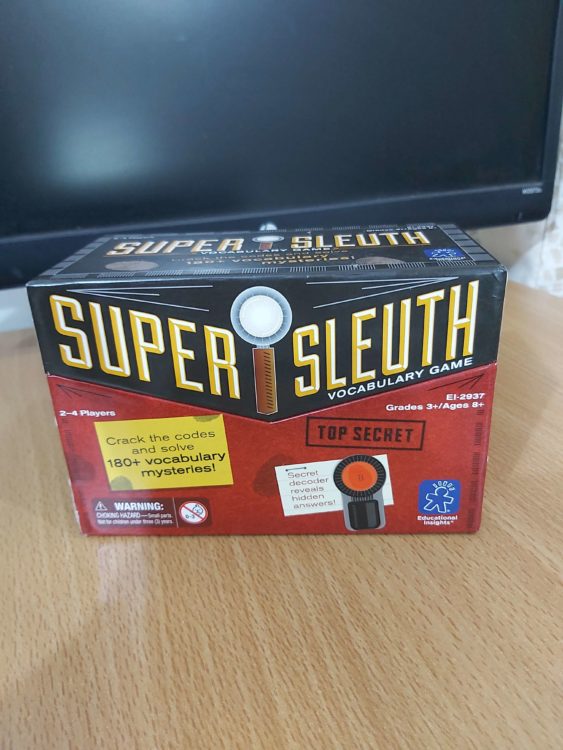
An English vocabulary game anchored in a detective setting to promote student interaction and engagement. Vocabularies covered are Synonyms, Antonyms, Homophones and Multiple-Meaning Words.
SETUP
Divide the cards into their separate categories in the game box using the dividers provided or alternatively place the cards face down on the table or play area separated into the four different categories.
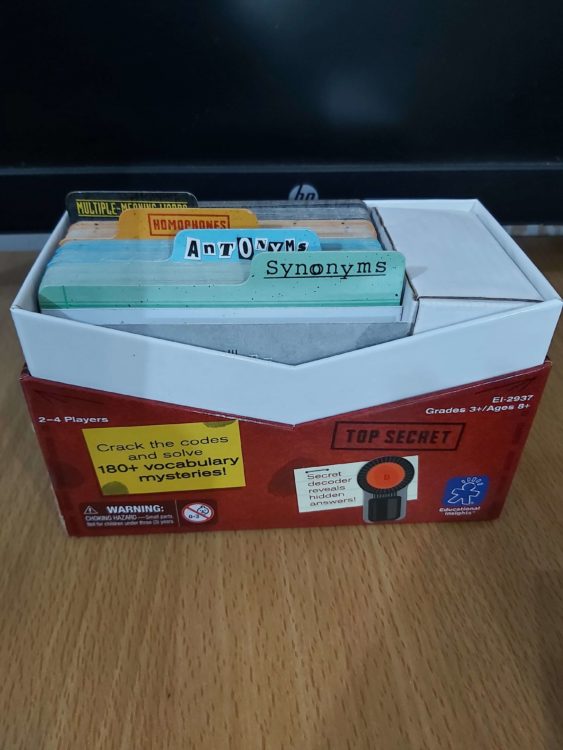
The cards in each category are numbered in order of difficulty to aid the learners
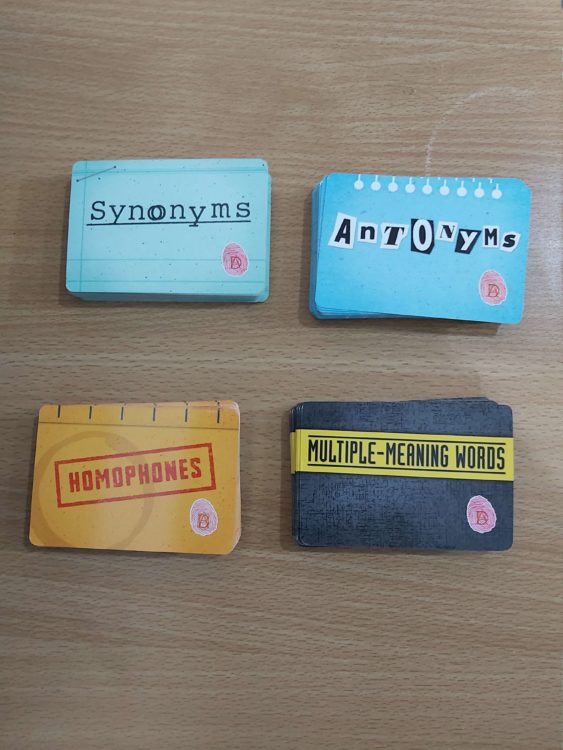
This can be disregarded and cards shuffled to make the choice random.
Decide who the first player will be.
GAMEPLAY
All players take up the role of a detective seeking out clues to solve a mystery.
The first detective picks a clue card from the first category of cards usually the Synonyms
They read out the question and answers to the hearing of the other players. The questions are set in standardized-test format.
They choose the correct answer.
They use the special answer-decoding magnifying glass to check the fingerprint at the back of the card.
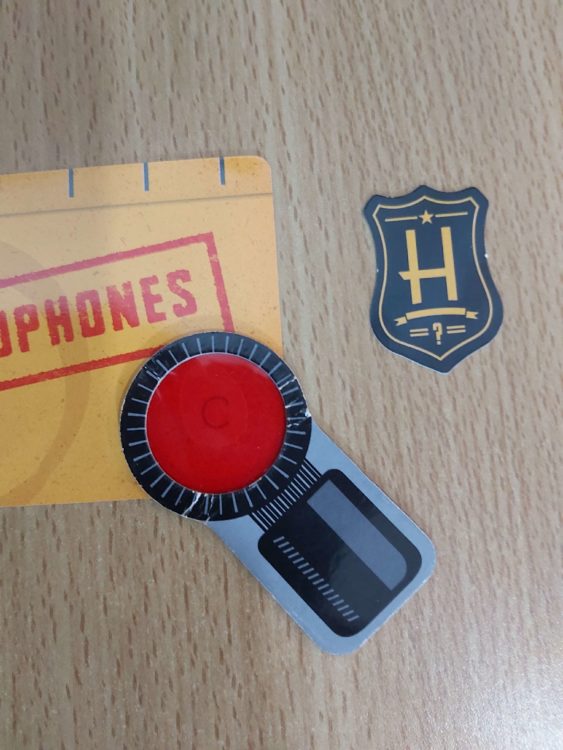
If the answer is correct, they win a badge and their turn ends. If wrong, their turn simply ends.
Each player (detective) takes turns drawing cards and answering the questions in an attempt to win badges.
Questions from all four categories must be attempted.
SPECIAL CARDS
Sounds simple enough right? But beware; there are sixteen special cards shared between the four categories to keep you on your toes, some good, others bad.
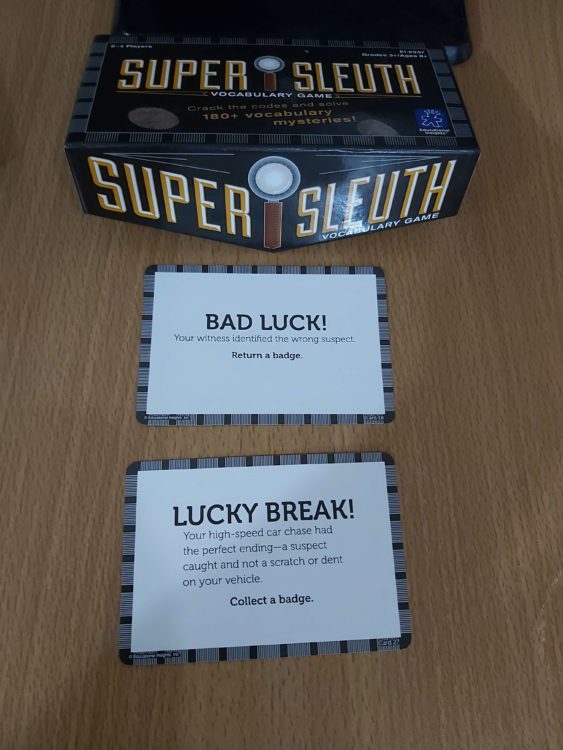
A good or lucky break card as it is termed gives you an advantage. A player who draws this card can collect or earn a badge without answering any question so be on the lookout for them.
On the other hand, a bad luck card takes away one of your earned badges which must be returned to the pool of badges. A player may quickly recover their lost badge by answering a question correctly on their next turn.
A MORE DIFFICULT VARIANT FOR OLDER KIDS
Since the aim is to earn twelve badges to win the game, I usually introduce a slight restriction to make the game a bit tougher for older kids.
Players are allowed to play only five cards each per category. If a player earns their badges before exhausting the five cards, they move to the next category immediately. Where not, they have to draw and play all the five cards for that category before moving to the next.
If after five cards they are yet to earn their three badges for that category, they move unto the next category and keep moving after five turns each till they have run through all four categories before going back to try and earn badges in the category where they are lacking badges.
Similarly, if they lose a badge by drawing a bad luck card in a particular category and they are lucky to still have turns in that category, then they may try to re-earn their badges immediately.
If unfortunately, they have no more turns for that category, they then have to wait until when that category is revisited to try to earn back their lost badges there.
Badges are tagged per category.
SCORING
The first player to earn three badges each from the four different categories (12 in total) wins and is promoted to Super Sleuth.
END OF GAME
The game ends once a player is promoted to Super Sleuth.